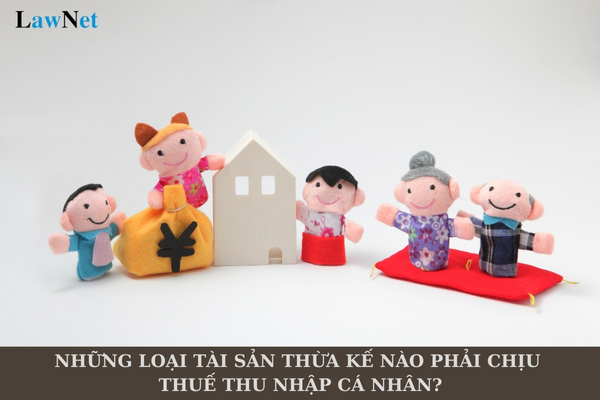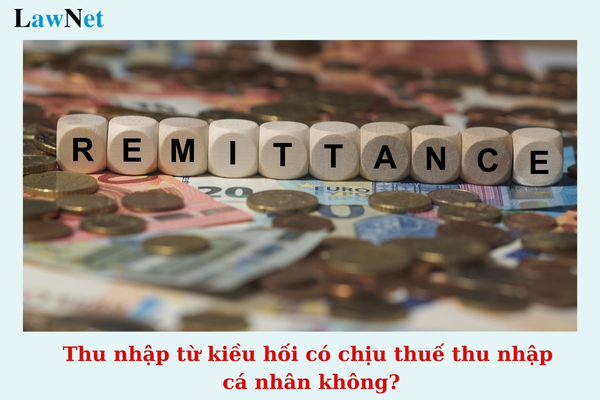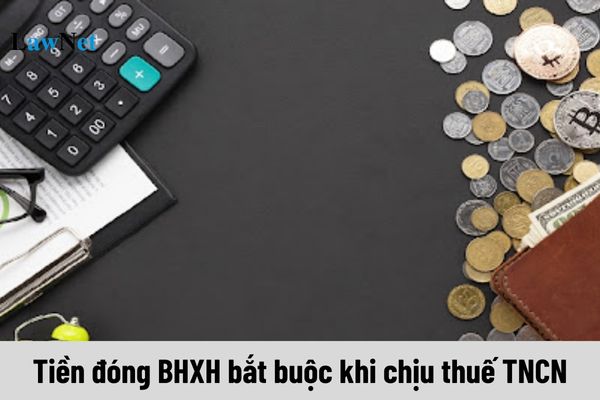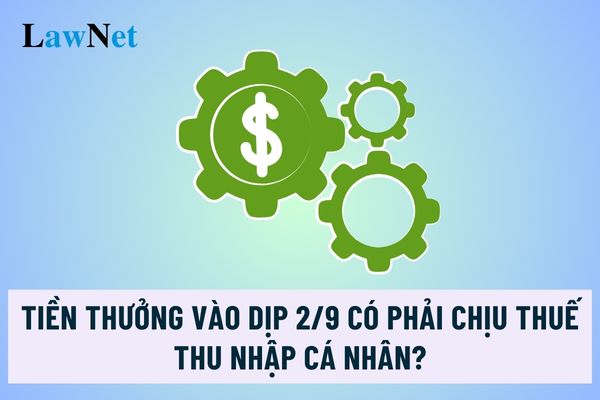Which income of a Vietnamese non-resident is subject to personal income tax?
Which income of a Vietnamese non-resident is subject to personal income tax?
According to Point b, Clause 1, Article 2 of Decree 65/2013/ND-CP, specific regulations regarding individuals are as follows:
Taxpayer
- Personal income tax payers include Vietnamese residents and Vietnamese non-residents with taxable income as stipulated in Article 3 of the Law on Personal Income Tax and Article 3 of this Decree. The scope of determining taxable income for taxpayers is as follows:
a) For Vietnamese residents, taxable income is income generated both inside and outside the territory of Vietnam, regardless of where the income is paid;
b) For Vietnamese non-residents, taxable income is income generated in Vietnam, regardless of where the income is paid.
- A Vietnamese resident is someone who meets one of the following conditions:
a) Is present in Vietnam for 183 days or more in a calendar year or within 12 consecutive months from the first day of presence in Vietnam;
An individual present in Vietnam according to this point is recognized by their physical presence on the territory of Vietnam.
b) Has a permanent residence in Vietnam under one of the following circumstances:
- Has a registered permanent residence according to the provisions of the law on residence;
- Has a rented house to reside in Vietnam according to the provisions of the law on housing, with lease contracts for a term of 183 days or more during the tax year.
In the case where an individual has a permanent residence in Vietnam according to this point but is actually present in Vietnam for fewer than 183 days in the tax year and cannot prove residency in another country, that individual will be considered a resident for tax purposes in Vietnam.
- A Vietnamese non-resident is someone who does not meet the conditions set out in Clause 2 of this Article.
Thus, according to the above regulation, taxable income for Vietnamese non-residents is income generated in Vietnam, regardless of where the income is paid.
Which entities are subject to tax declaration declared separately in Vietnam?
According to Article 7 of the Law on Personal Income Tax 2007 as amended by Clause 3, Article 1 of the Law on Amendments to the Law on Personal Income Tax 2012, the specifics of tax declaration declared separately are as follows:
Tax period
- The tax period for Vietnamese residents is defined as follows:
a) The annual tax period applies to income from business activities; income from wages and salaries;
b) The tax period for each occurrence of income applies to income from capital investment; income from capital transfer, except for income from securities transfer; income from real estate transfer; income from winnings; income from royalties; income from franchising; income from inheritance; income from gifts;
c. The tax period for each securities transfer or annually applies to income from securities transfer.
- The tax period for Vietnamese non-residents is based on each occurrence of taxable income for all taxable income.
Thus, according to the above regulation, the tax declaration declared separately applies as follows:
- For Vietnamese residents: income from capital investment; income from capital transfer, except for income from securities transfer; income from real estate transfer; income from winnings; income from royalties; income from franchising; income from inheritance; income from gifts;
- For Vietnamese non-residents: all taxable income.

Which income of an individual is subject to personal income tax in Vietnam? (Image sourced from the Internet)
Which income is exempted from personal income tax in Vietnam?
According to Article 4 of the Law on Personal Income Tax 2007, as amended by Clause 2, Article 1 of the Law on Amendments to the Law on Personal Income Tax 2012, the following personal incomes are exempt from personal income tax:
- Income from the transfer of real estate between spouses; biological parents and children; adoptive parents and adopted children; parents-in-law and daughters-in-law; parents-in-law and sons-in-law; paternal grandparents and grandchildren; maternal grandparents and grandchildren; siblings.
- Income from the transfer of housing, residential land rights, and assets attached to residential land in cases where individuals have only one home or residential land.
- Income from the value of land use rights of individuals allocated land by the State.
- Income from inheritance and gifts that are real estate between spouses; biological parents and children; adoptive parents and adopted children; parents-in-law and daughters-in-law; parents-in-law and sons-in-law; paternal grandparents and grandchildren; maternal grandparents and grandchildren; siblings.
- Income of households and individuals directly engaged in agricultural production, forestry, salt production, aquaculture, and fishing that have not been processed into other products or only undergone simple processing.
- Income from the conversion of agricultural land by households and individuals allocated by the State for production.
- Income from interest on deposits at credit institutions, interest from life insurance contracts.
- Income from remittances.
- Salary for night shifts and overtime paid higher than the wages for day shifts, in accordance with legal provisions.
- Retirement pensions paid by the Social Insurance Fund; retirement pensions paid by voluntary pension funds on a monthly basis.
- Income from scholarships, comprising:
+ Scholarships received from the state budget;
+ Scholarships received from domestic and foreign organizations under the educational support programs of those organizations.
- Income from compensation for life insurance, non-life insurance contracts, compensation for labor accidents, state compensation payments, and other compensations as prescribed by law.
- Income received from charitable funds established or recognized by competent state agencies, operating for charitable, humanitarian, non-profit purposes.
- Income received from foreign aid for charitable and humanitarian purposes in the form of both government and non-governmental support approved by competent state agencies.
- Income from salary or wages of Vietnamese crew members working for foreign shipping companies or Vietnamese shipping companies engaged in international transport.
- Income of individuals who are ship owners, have the right to use the vessel, or work onboard from the provision of goods, services directly servicing off-shore fishing activities.










- Is a person who assists in tax evasion subject to publishing of information about taxpayers in Vietnam?
- What are conditions for not imposing anti-dumping duties on products whose dumping margin are not more than 2 % of export price in Vietnam?
- From December 16, 2024, what will be the preferential import tax duty for e-cigarettes in Vietnam?
- What is the guidance for looking up online land tax on the e-portal of the General Department of Taxation of Vietnam?
- Is the credit-invoice method applied by the taxpayer that earns at least 1 billion VND in annual revenue in Vietnam?
- Shall enterprises be entitled for VAT deferral in Vietnam for October 2024 according to Decree 64?
- What are specialized measures during processing of tax refund applications in Vietnam?
- Do tax authorities of Vietnam have the right to publish tax-related regulatory violations on mass media?
- Is the amount received under public service housing policies considered taxable personal income in Vietnam?
- Are invoices issued for internally used goods in Vietnam?

